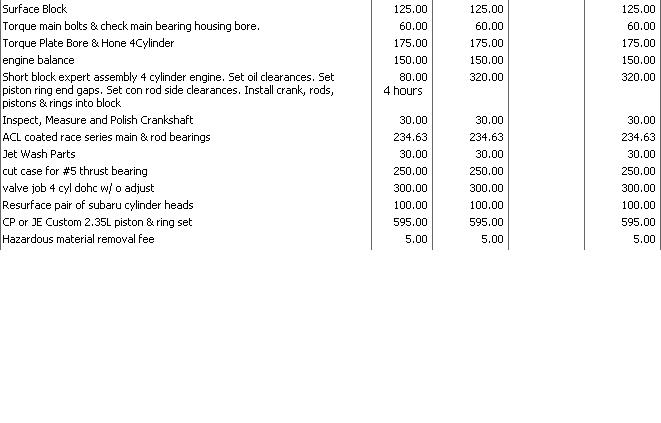I've got a complete EJ20G broken down to it's individual parts:
- Block (Cylinder walls look great, but I want to do new rings so I think a light honing will be needed, closed deck)
- Heads look good
- Rods and Pistons looks good
- Crank is good but does have some minor surface rust so would need to be cleaned
I'm going to have a go at doing this myself since I've got a lot of time until my delivery date, but if I decide not to re-assemble the engine myself (never done it before), does anyone know what I should expect to pay a competent shop for a the machining and re-assembly of the engine?
I'm trying to see if it's going to be worth it to build it or just buy a brand new 2.0 shortblock ($1900) and sell what I have.
Thanks!
- Home
- Latest Posts!
- Forums
- Blogs
- Vendors
- Forms
-
Links

- Welcomes and Introductions
- Roadster
- Type 65 Coupe
- 33 Hot Rod
- GTM Supercar
- 818
- Challenge Series
- 289 USRCC
- Coyote R&D
- Ask a Factory Five Tech
- Tech Updates
- General Discussions
- Off Topic Discussions
- Eastern Region
- Central Region
- Mountain Region
- Pacific Region
- Canadian Discussions
- Want to buy
- For Sale
- Pay it forward
-
Gallery

- Wiki-Build-Tech



 Thanks:
Thanks:  Likes:
Likes: 

 Reply With Quote
Reply With Quote





